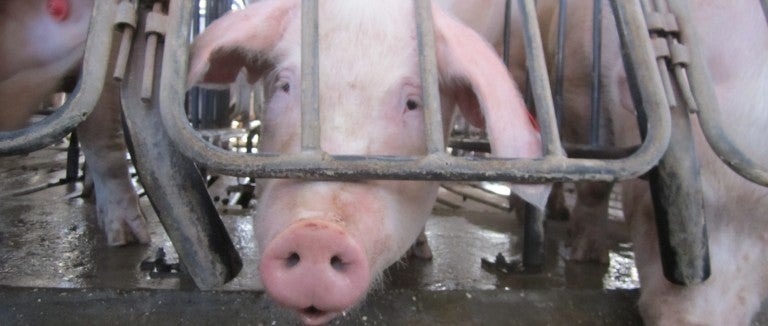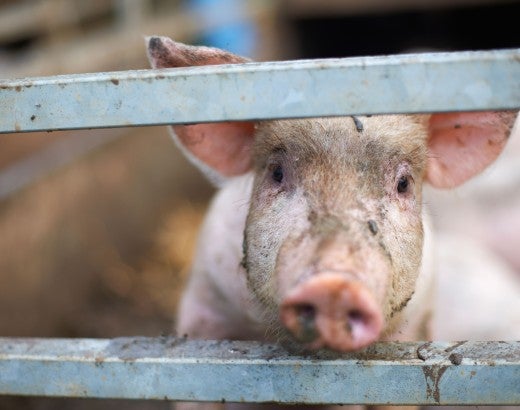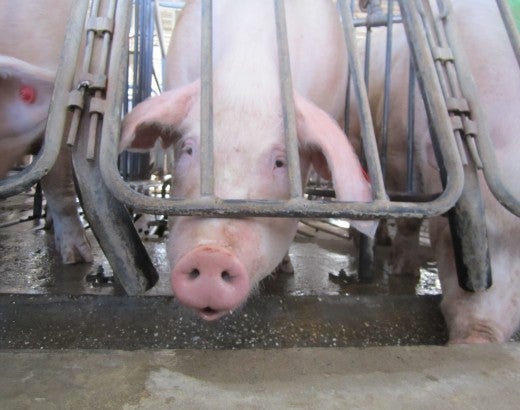A federal court has ruled that a jury was right in holding Smithfield responsible for creating a nuisance for a community in the vicinity of a pig growing facility in North Carolina.
Neighbors of the Smithfield-affiliated facility, which held 15,000 pigs, had alleged that the company essentially made their lives unbearable with the stench from massive amounts of manure, along with flies and very loud noises associated with factory farming. The majority opinion issued this week by judges from the U.S. Court of Appeals for the Fourth Circuit affirmed a jury verdict from a lower court against Smithfield, which is the world's largest pork producer, that the company and its officers "deliberately" mandated that its affiliated farmers use such disgusting and unsanitary practices that created unlivable conditions for surrounding communities "because doing so would increase profits."
This is a historic decision -- one of the most damning judicial critiques of factory farming ever -- and it has potentially far-reaching implications for Big Ag and the manner in which it now operates. We have learned that less than 24 hours after the decision, Smithfield arranged to settle this case and more than 20 like it, but the precise terms are unknown and will likely be kept confidential.
The Humane Society of the United States, along with several other organizations, filed a friend of the court brief (known as “an amicus brief”) in the case against Smithfield, highlighting that cruelty to animals and serious environmental harms and threats to human health are interconnected.
One of the Fourth Circuit judges in the majority wrote a separate concurring opinion that relied heavily on our brief to describe the devastating harms industrial farming inflicts on animals, workers, the environment and rural communities. Judge James Harvie Wilkinson III wrote that “animal welfare and human welfare, far from advancing at cross-purposes, are actually integrally connected,” and that “it is well-established that close confinement leads to the ‘increased risk of the spread of disease’ between hogs.” You can read the judge’s full opinion here.
The court decision issued yesterday, and the concurring opinion by one of the most influential conservative judges in the country, will no doubt have tremendous influence on other judges who grapple with factory farm cases in the future. We can also take heart in the fact that this win signals a growing understanding, among average Americans and our courts, about the ills of factory farming. Companies like Smithfield have long gotten away with exploiting animals and hurting people to protect their bottom lines, but increasingly they are finding it hard to get away with their harmful practices.



